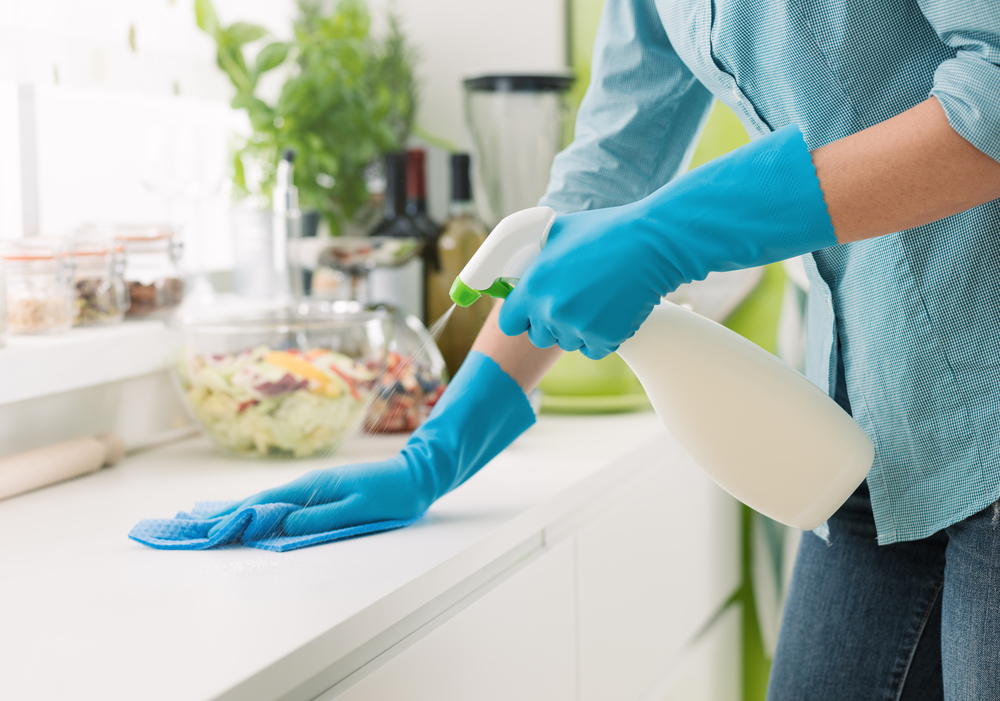With the COVID-19 pandemic going around, we all are anxious every time we come home or bring home grocery or anything we purchase. You don’t know who touched the items or talked or even sneezed near them before you choose to bring them home. There might be viruses and bacteria sticking to your hand that can move to any surface at home when you touch it.
Maintaining good hygiene is always necessary, as the coronavirus is not the only microorganism that can spread by contact. However, as more and more people get infected around you, it is of utmost importance that you keep your house, yourself, and your family as clean as possible. Sickness can be devastating to one’s body, mind, and soul. So, in the case of microbes, prevention is always better than cure. Maintaining cleanliness will also give you mental peace so you don’t get anxious about contracting the virus and can go about your daily tasks.

Personal Hygiene
The first step to maintaining good hygiene during COVID-19 is keeping your person clean. It is you and your family who will be personally affected by the virus, so you mustn’t let the virus enter your body in the first place. Even if you get infected and somehow remain asymptomatic because of having a healthy immune system, you can still spread it to more vulnerable people like older people, people with pre-existing illnesses like diabetes or heart problems, or children, and they might not be able to cope with it as well as you will. So, to ensure the health and safety of you and others around you, you must take some strict measures every time you contact the outside world. There are several ways to do that –
1. Hand Cleaning
We all know that keeping hands clean is the best way to prevent you from spreading or catching the virus. It mainly enters the body through the mucus membranes which are your nose, mouth, and eyes. When you touch your nose or mouth with infected hands, the virus finds a way to enter your body and then wreaks havoc on your organs.
The best way to clean your hands, according to WHO, is by washing them with soap or any detergent and water for at least 20 seconds or using an alcohol-based hand sanitizer. You can teach your children to sing the Happy Birthday song twice while washing so the wash lasts for 20 seconds. Remember to clean not only your palms but also behind your hands, inside nails, above the wrist, and between fingers. Rub hands together to properly spread the soap or sanitizer in all nooks and crannies of your hand.
If you use a sanitizer, read the label to make sure it has alcohol in it, specifically ethyl alcohol (ethanol) or isopropanol, as sanitizers without alcohol will not be effective against the coronavirus. You must very carefully check that it does not have methanol in it, as methanol is highly toxic when ingested, smelled, or even absorbed through the skin. The alcohol percentage must be between 60-90% for it to be effective. Do not dilute it before using it and keep rubbing your hands till the sanitizer completely dries. Both hand wash and sanitizer can dry the skin on your hands, so you can apply hand cream or moisturizer after you dry your hands. Try to air-dry your hands or use a clean towel or tissue for wiping. Touching a dirty surface will reverse the effect of washing.
2. Face and Mouth Protection
Never go out without wearing a mask. You don’t know if the person standing behind you in the queue at the supermarket is infected or not, and you cannot risk it. Get a 3-ply cloth mask which you can wash after every use, up to about 30 times. Washing can be done by hand or in a washing machine. Dry well before reuse. Make sure the mask has a metal strip on the nose and a good, tight fit on your face which allows you to breathe well while protecting you. Do not remove the mask if you are around people. You can remove it if you are alone in your car or an empty room, but take care not to touch the front portion of the mask. Remove it by holding the ear-straps. Don’t touch your face, especially eyes, nose, and mouth. Sanitize your hands before touching food.
At home, if you have to cough or sneeze, do so on your arm or on a tissue, which you must discard into a closed bin after use. Sanitize or wash hands immediately after. Keep sanitizers in all rooms so they are easily accessible, or provide all your family members with one each to can carry around.
Home Hygiene
Home is the one place we consider ourselves as the safest, and it is prudent to keep it that way. You must begin by deep cleaning your house followed by regular maintenance. Let’s look at the most important spots that you must remember to clean frequently to maintain a healthy atmosphere at home.
1. High-Touch Areas
There are several high-touch areas at homes such as door handles, kitchen handles, shelves, dining tables, keys, and gadgets. For areas that won’t be damaged by water such as handles and tables, you can use Eco-Sense cleaners and water to clean them for safe and effective disinfection. Store the disinfectant solution in a spray bottle for easy use. General spray cleaners such as Melaleuca’s Tough and Tender will need some time to act on the viruses and bacteria. After spraying, let it sit for a minute before wiping with a clean cloth.
For sensitive objects like electronic gadgets or toys, wipe them with an alcoholic solution (60-90% ethanol or isopropanol in water). You can store this too in a separate spray bottle. Do not wipe away the alcohol solution; let it air dry. Remember to clean your laptop, keyboard, mouse, and remotes too as these can be the breeding spot for more bacteria than a public restroom!
2. Kitchen
It is necessary to keep your kitchen clean. Food must be free of microorganisms at all times. Wash all your veggies thoroughly before using them. Pay special attention to what you use to cut meat, and clean the knife and chopping board very thoroughly with Eco-Sense cleaners and warm water.
Keep your sink always dry and dry your dishes before arranging them. Give a vinegar rinse to your dishwasher at least once a week to get rid of germs and remove the scales. You can use warm water in the dishwasher or, even better, soak your dishes in warm water before putting them for a wash cycle to make sure everything is completely free from germs.
Clean cans and bottles with a disinfectant before storing. You cannot use disinfectant on vegetables, so wash them well under running water. Remove unwanted packaging material and throw them in a closed bin. Wash your hands or sanitize them immediately afterward.
3. Laundry
After coming home from outside, remove clothes and clean hands before wearing fresh clothes. The best way to ensure you don’t have any germs sticking to your body is to take a shower after you remove the worn clothes. Place used clothes in a closed laundry bag and try to wash them as soon as possible to prevent anyone from touching it. Try not to shake them much so you don’t accidentally disperse the microbes in the air. Use your washing machine with the warmest possible settings and dry the clothes thoroughly; both methods are essential to kill germs.
If you use a laundromat, choose a time when it’s less crowded. Prepare your clothes at home so you limit your time spent outside. Fold your clothes at home. Wash your laundry bag too. Consider using disposable laundry bags if possible.
4. Keep the Home Atmosphere Clean
As the most vital defense against the coronavirus at present is your immune system, it is important to keep it at its peak health. Allergies tend to weaken the immune system and make you more susceptible to infection. Around the house, check every point for the presence of allergens. Wash bedding, curtains, linens, blankets, and throw pillows frequently. If anyone in your family has asthma or dust allergy, use allergen covers on sleeping surfaces.
Clean your mattress per the instructions provided by the manufacturer. Check humid areas of the house for the presence of mold or mildew and clean thoroughly if you find them. Alternatively, you can also invest in an air purifier or air filtration system to reduce the allergens inside your home. Also, check if your furnace filter needs changing. It usually must be changed once at the beginning of winter and again mid-season.
If you live in a dry-weather area, you can get a humidifier. Winters usually dry the air and with furnaces and heating, our skin and sinuses can heavily suffer. Humidifiers work wonders for soothing sinuses and keeping sinus infections at bay. You can find humidifiers in a huge variety – from extensions for your cooling and heating system to small portable humidifiers that you can simply attach to a water bottle. This will also prevent your skin from drying and cracking.
Though all these steps will help you inside your home, you must maintain social distancing and wear a mask at all times when you step out. It is also wise to cancel your little one’s playdates or any outdoor plans that you might have. Health is the most important thing right now and always; other fun activities can wait for a coronavirus-free world. Take care and be safe!
Tell us, what ways have you found useful to keep extra hygienic these days?







